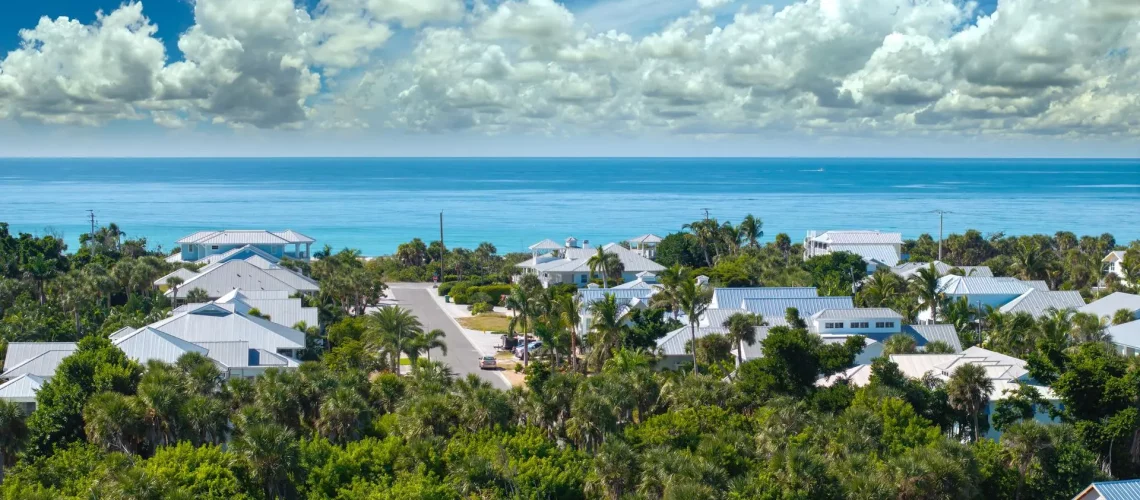As the 2024 legislative session concludes, several significant bills impacting homeowners’ associations (HOAs) and condominium associations have been enacted. These changes aim to enhance governance, transparency, and safety within community associations. Below is a detailed summary of the newly passed legislation:
House Bill 59: Provision of Homeowners’ Association Rules and Covenants
This bill takes effect on July 1, 2024, and mandates that homeowners’ associations provide a physical or digital copy of the association’s rules and covenants to every member by October 1, 2024. Additionally, any amendments to these documents must be provided to the members. Associations can comply with this requirement by posting the documents on their website and notifying members about the availability and updates.
House Bill 293: Hurricane Protections for Homeowners’ Associations
This bill went into effect May 28, 2024, and requires HOAs to adopt hurricane protection specifications for each structure or improvement governed by the association. These specifications may include the color and style of hurricane protection products and must comply with applicable building codes. Applications for the installation, enhancement, or replacement of hurricane protection that conform to these specifications cannot be denied.
House Bill 1021: Community Associations
This bill takes effect on July 1, 2024, and includes several provisions aimed at enhancing the governance of condominium and cooperative associations:
- Community Association Managers (CAMs): CAMs must return all community association records within 20 business days of termination or a written request, disclose conflicts of interest, and require board approval for contracts involving conflicts by a two-thirds vote of directors present.
- Official Records: Associations must maintain specified records for download on their website by January 1, 2026, with the threshold requirement decreasing from 150 units to 25 units. Email addresses and facsimile numbers may be accessible to unit owners if they consent to electronic notices.
- Criminal Violations: Establishes penalties for fraudulent activities, including misdemeanors and felonies for defacing or destroying required accounting records, refusing to produce association records, fraudulent voting activity, or accepting a kickback.
- Financial Reporting: Prohibits associations from reducing the required type of financial statement for consecutive years and mandates audited financial statements for associations with 1,000 or more parcels.
- Structural Integrity Reserve Study: Associations must distribute a copy of the study to each unit owner or make it available for inspection within 45 days of receiving the study.
- Milestone Inspections: Exempts four-family dwellings with three or fewer habitable stories above ground from these requirements.
- Meetings of Condominium Associations: Associations with 10 or more units must meet quarterly, with agendas allowing members to ask questions about construction projects, revenues, expenditures, and other issues. Notices for meetings on assessments must include the cost, purpose, and a copy of any proposed contract.
- Voting in Condominium and Cooperative Associations: Requires notifying unit owners 90 days before suspending voting rights for nonpayment of fees and allows unit owners to consent to electronic voting.
House Bill 1203: Homeowners’ Associations
This bill takes effect on July 1, 2024, and introduces several new requirements aimed at improving HOA governance:
- Community Association Managers (CAMs): CAMs must attend at least one member meeting annually, provide contact information and hours of availability, and maintain specific documents for seven years. Digital copies of records must be available for download by January 1, 2025.
- Criminal Penalties: Penalties are introduced for violations related to record inspection and copying requirements, with severe penalties for defacing or refusing to release records with intent to avoid detection.
- Financial Reporting: Requires audited financial statements for associations with 1,000 or more parcels.
- Education Requirements: Sets new continuing education requirements for association directors, including specific hours dedicated to homeowners’ associations, recordkeeping, and financial literacy.
- Architectural Control Covenants: Must be enforced equitably.
- Prohibited Rules/Covenants: Restrict the enforcement of rules regarding interiors not visible from public areas, as well as the storage of items not visible from an adjacent parcel, common area, or community golf course. Additionally, associations are prohibited from restricting personal vehicles, including work vehicles, from being parked in the property owner’s driveway. Associations cannot prevent homeowners from inviting contractors based on the absence of professional licenses or not being on a preferred vendor list.
- Fines and Suspensions: Associations cannot levy fines or impose suspensions for specific actions, such as leaving garbage receptacles at the curb within 24 hours before or after the designated collection day or time, and leaving holiday decorations or lights up longer than indicated in the governing documents.
For more detailed information on each bill or to discuss how these changes may impact your association, please feel free to contact our office. This summary provides an overview of the key legislative changes affecting Florida community associations in 2024. The full legislative texts and additional details are available upon request.

